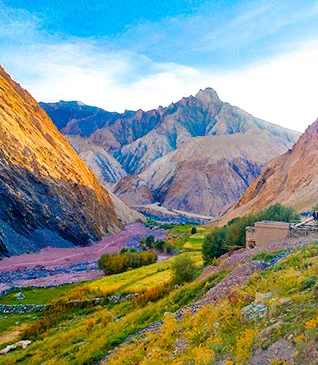The Himalayas are known for their beautiful towering peaks, lush valleys, rivers, and ancient culture and heritage. The Himalayas not only hold geological significance but also are a sanctuary for nature and adventure enthusiasts. With an increasing demand for hiking and trekking in recent times, more and more people have started to visit the Himalayas. Unregulated tourism and a lack of knowledge about eco-tourism, have led to the deterioration of the pristine environment of mountains. Amidst this, Trek The Himalayas emerges not just as a trekking company but as stewards of these pristine realms, dedicated to the ethos of sustainable trekking.
While we want to share our love for adventure and mountains with the people, we ensure that our endeavors leave no lasting scars on the mountain ecosystem. Our commitment to sustainable trekking is not merely a mission statement; it's a way of life woven into every step we take on these sacred trails. With every footprint, we strive not just to reach the summits but to preserve the very essence that makes the Himalayas a sanctuary of natural wonders. We believe preserving the Himalayan environment is not just about the present, it is a legacy we safeguard for generations yet to come. We want to make sure that future generations inherit a Himalaya untouched by the scars of negligence. To ensure this, we regularly conduct clean-up drives to clean the Himalayas of waste as much as possible.
Our Latest Cleanup Drive in The Tarsar Marsar Trek in Kashmir
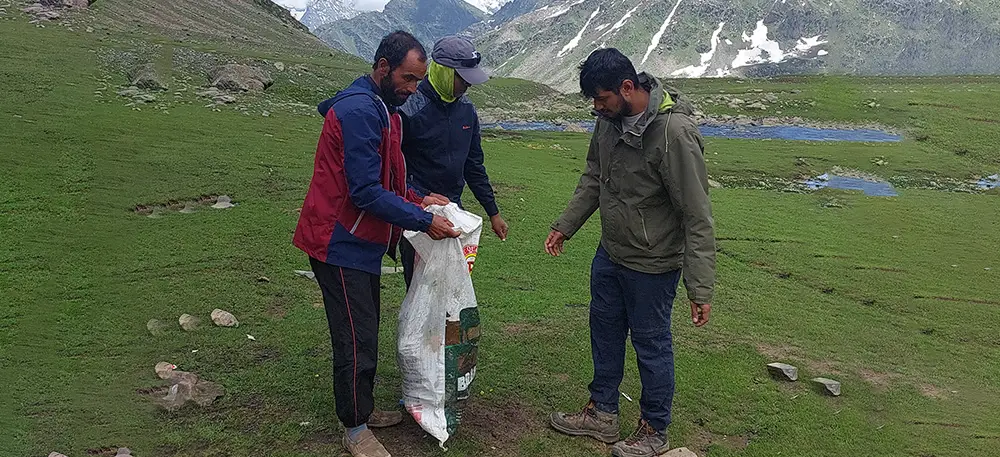
Trek The Himalayas recently undertook a profound environmental initiative aimed at preserving the pristine beauty of the Himalayas through a 4-day cleaning drive led by our dedicated Base Camp Manager, Shubham Bhatt, from September 4th to 9th. The team strategically targeted four key campsites along the trail: Lidderwat, Shekwas, Tarsar, and Sundarsar, recognizing these areas as critical nodes for environmental preservation. The initiative commenced with a meticulous assessment of pollution hotspots, identifying areas most affected by waste-related issues. This step was crucial in understanding the types and scale of environmental challenges faced by these sites. A systematic strategy was devised for the collection and disposal of waste. Emphasizing efficiency and thoroughness, our team meticulously combed through the targeted areas, leaving no stone unturned in the quest to rid these landscapes of human impact.
Waste materials were diligently categorized to ensure a responsible approach to disposal. The team focused on segregating materials to facilitate appropriate disposal, recycling, or upcycling, adhering to eco-friendly practices. After the cleaning drive, a comprehensive report detailing the outcomes of the campaign was meticulously prepared. This report served as a testament to the success of the initiative, encapsulating the positive impact on the targeted areas. In a collaborative effort towards responsible waste management, the waste collected during the drive was carefully handed over to the Pahalgam Municipal Committee. This collaboration ensured that the waste underwent proper disposal and recycling, contributing to the larger environmental cause. We also received accolades from the Pahalgam Tourism authorities for our efforts. This recent Tarsar Marsar Cleanup Drive epitomizes Trek The Himalayas' unwavering commitment to sustainable trekking and environmental conservation. Through concerted efforts, responsible waste management, and collaboration with local authorities, we strive to leave these breathtaking landscapes untarnished for the enjoyment of future generations.
Other Cleaning Missions Success Stories
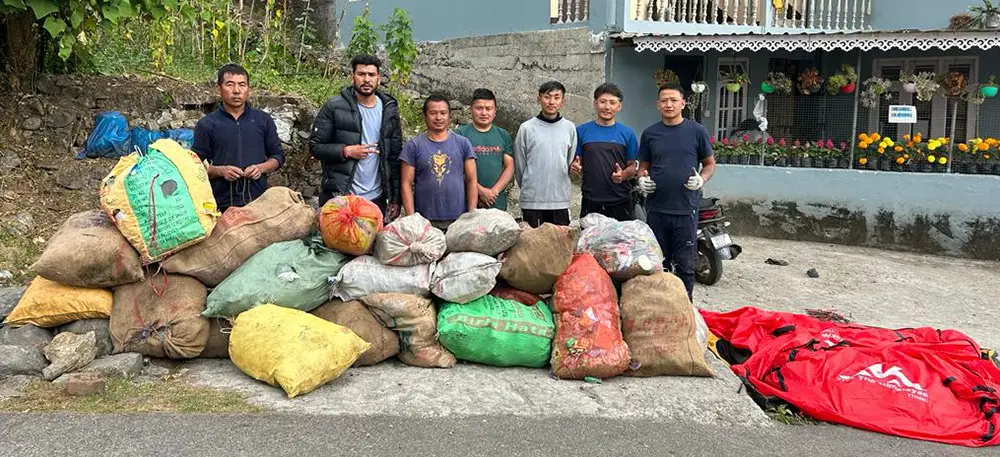
- Cleaning prominent trails like Goechala, Pangarchulla, and Roopkund Trail.
- In June 2019, Trek The Himalayas collaborated with the Sewaro Youth Club in Sikkim for a significant cleanup effort on the Goechala trek. This collaborative initiative focused on removing tons of garbage, particularly in the vicinity of Samiti Lake.
- Recent cleaning drives, in collaboration with local NGO Waste Warriors, were conducted in Govind National Park (541 kilograms of waste removed) and Badrinath Forest Division (2500 kilograms of waste removed). All waste was diligently deposited to the nearest Municipal Corporations for proper disposal.
Through these partnerships with local NGOs like Waste Warriors, Trek The Himalayas extends its reach beyond the trekking trails. By actively engaging in cleanup initiatives in environmentally sensitive areas like Govind National Park and Badrinath Forest Division, we underline our dedication to preserving the ecological balance of these regions. Trek The Himalayas not only works towards maintaining the ecological integrity of the trails but also actively involves the trekking community in the shared responsibility of preserving the natural beauty of these majestic landscapes. These initiatives reflect our unwavering commitment to sustainable trekking and environmental stewardship.
Promoting Sustainable Practices
Trek The Himalayas understands that responsible trekking extends beyond the trails and as such we follow various sustainable practices during the trek. We encourage our trekkers to do the same.
- Use of Steel and Brass Utensils
We prioritize sustainability by utilizing steel and brass utensils and vessels during treks. This is done to eliminate the environmental impact associated with disposable, single-use plastics and promote eco-friendly alternatives. We bring back the utensils after washing so that no trace of our presence remains on the trails, maintaining the pristine beauty of the natural surroundings.
- Elimination of One-time-use Plastics
Trek The Himalayas takes a firm stance against one-time-use plastics during the trekking experience. We aim to reduce plastic waste and its detrimental effects on the environment, ensuring a cleaner and more sustainable trekking adventure.
- Distribution of Garbage Bags
Garbage bags are distributed to trekkers to facilitate responsible waste disposal. This helps in maintaining the cleanliness of the trails and ensuring that waste is managed responsibly.
- Education on Waste Segregation
Trekkers are educated on the importance of waste segregation and responsible waste management practices to raise awareness about the impact of their actions and encourage responsible waste disposal.
- Proper Disposal Channels
All collected garbage is systematically sent to Municipal Corporations for proper disposal. This contributes to organized waste management systems and ensures that the waste is handled in an environmentally responsible manner.
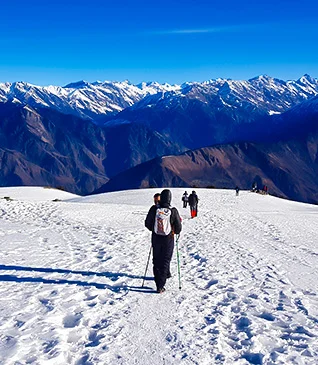
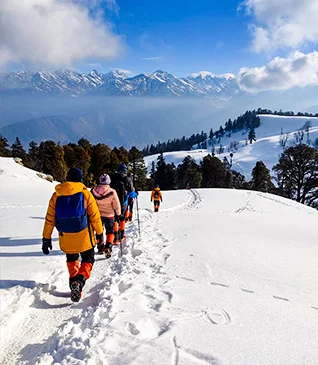


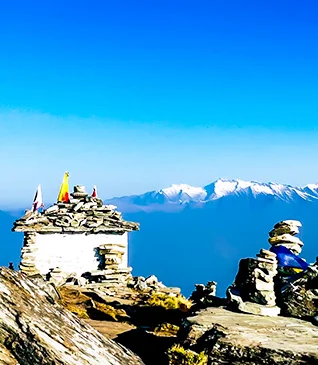
.webp)

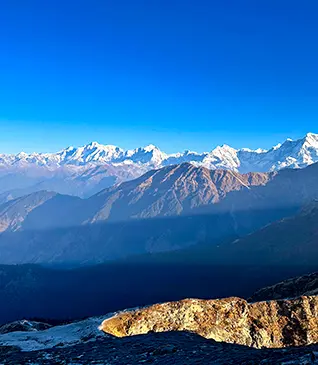


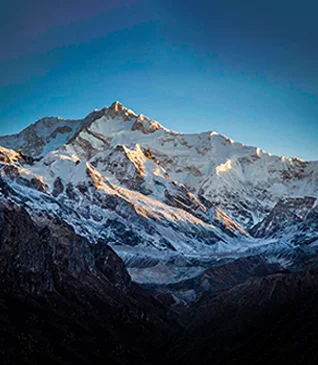
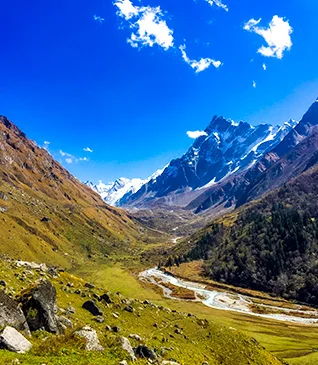
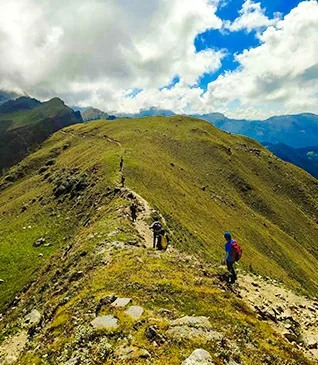

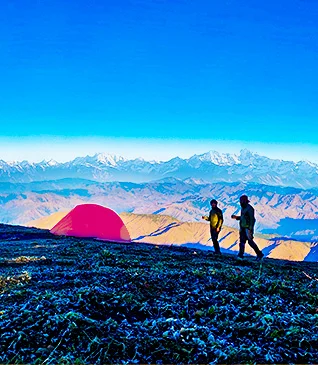
.webp)
.webp)

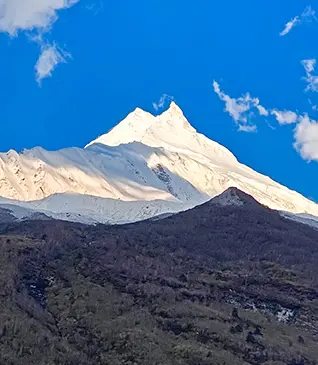
.webp)
.webp)
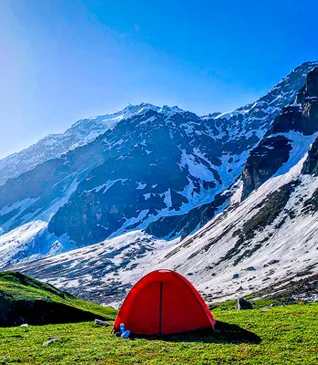
.webp)
